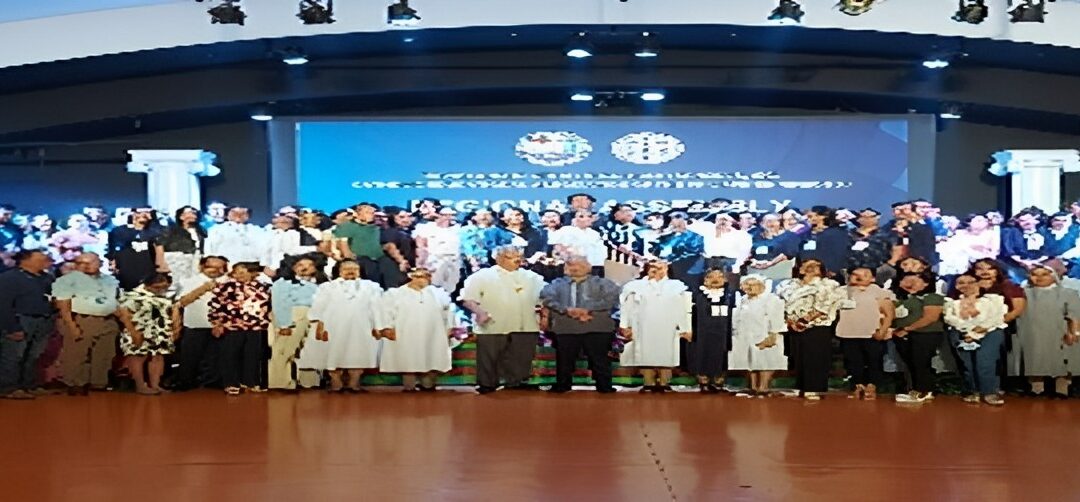Convening as regional arm of the Catholic Education Association of the Philippines (CEAP), the Davao Association of Catholic Schools (DACS) held its annual assembly last July 21, 2023 at the Holy Cross of Davao College, in Davao City.
More than two hundred participants including school administrators, students, faculty, non-teaching staff, parents, alumni and representatives from school adopted communities gathered to reflect on the theme, “Pilgrims of Hope: Exploring Pathways of Synodality”. In sectoral conversations, the participants shared their positive experiences (Salamat) and their hopes (Sana) for their schools. In the opening eucharistic celebration, Most Rev. Guillermo Afable, DD, Bishop of Digos underscored in his homily the importance of Catholic schools and Catholic families in journeying with the local Church in the mission of formation and evangelization of young people.
Sr. Ma. Marissa R. Viri, RVM, the CEAP National President, graced the occasion and addressed the assembly about the significance of coming together as Catholic schools and engage in authentic dialogue. The sectoral consultation hopefully becomes a venue for encounter and discernment and to experience journeying in synodality with the Church.
DACS is an association of Catholic schools established in 1963. Its member schools are operating in the ecclesiastical region of Davao, Digos, Tagum and Mati. The year 2023 marks its sixtieth since its foundation. It’s newest member – the Mother Berenice Learning, located in the Archdiocese of Davao was confirmed during the assembly, increasing the number of members to seventy-one.
Br. Noelvic H. Deloria, SC, DACS President and CEAP Regional Trustee, highlighted the mission of DACS-CEAP to accompany Catholic educational institutions. He mentioned programs and activities that has been undertaken through a period of transition coming from the pandemic. Among these is the launching of the DACS Laudato Si Program which aims to contribute to the global action against climate change by tree growing and rehabilitation of watershed areas. Various activities and advocacies were also pursued in the areas of ecology, justice and peace, sports and education.

